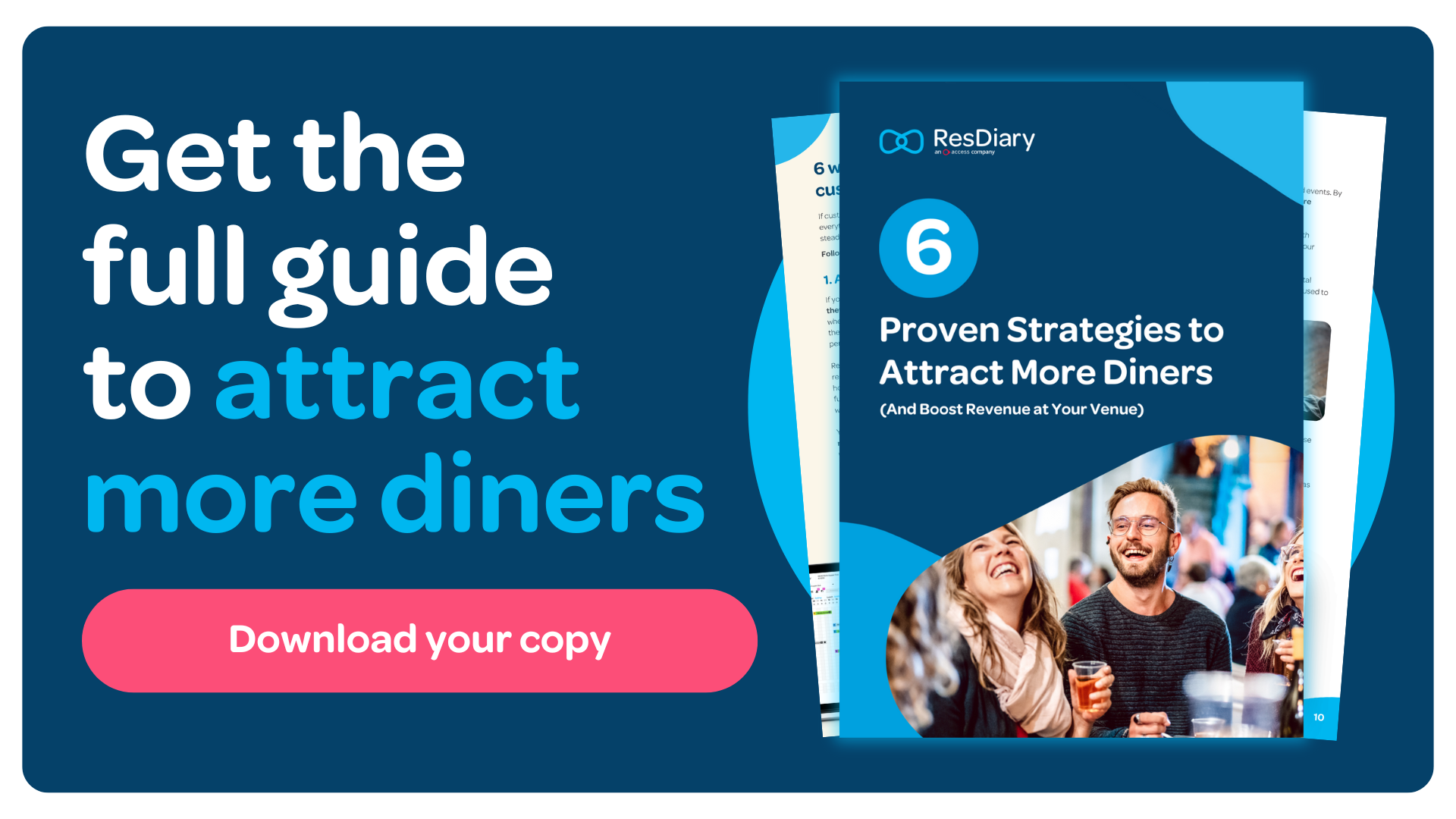Google is often the first port-of-call when searching for a restaurant. According to Forbes (2020), there’s over a billion Google searches for restaurants each month. Customers want the best dining experience possible, and relevant information that enables them to choose can usually be accessed via the search engine.
Diners may be reluctant to attend a specific venue if there’s a lack of quality information (or, they might not come across it at all). Alternatively, they might be more inclined to book if the venue has a strong online presence.
Here’s a few tips on using Google as a great marketing tool.
1) Fill in the details
Patrons want good information and convenience when selecting a venue for the day/evening ahead. A Microsoft study shows that, on average, one’s attention span online is about eight seconds. If information regarding a particular venue is hard to find, it’s possible that the online user will move on, or forget what they are doing. A lost booking.
Venue owners can update their business profile to include relevant information, such as (but is not limited to): the location, contact details, professional images with a takeaway/dine in menu, a price range, up-to-date website and social media pages, a bio, answers to relevant questions and so on.
A professional, accurate and comprehensive Google presence may suggest that the venue is well-organised. When competition is rife, it may just be a small detail or convenience found in an eight-second window that wins a customer over.
2) Reviews
Patrons rely on feedback in choosing a venue. It might be from someone they know, advice from a stranger or (most commonly) online reviews. According to Review Trackers data, over 63 per cent of customers use Google Reviews before visiting a business location. Consider strategies to increase the volume of positive reviews, such as asking loyal and returning customers to leave one, and discussing why it might be meaningful for the venue.
The downside of reviews is, of course, the risk of non-favourable ones. They can be the result of a bad day for the venue, include inaccurate details and perhaps be spiteful and/or unproductive. There’s a few strategies for venues to consider: reporting reviews that cross the line could lead to these reviews being removed. There might also be a place for a personal response (and a request that they remove it if their criticism has been addressed).
Reviews are so often the primary point of attraction for customers in considering a venue, but there’s risk involved in encouraging reviews. So, consider what’s best for you and your venue.
3) SEO
There’s two key reasons why people may come to Google prior to booking a restaurant. They know exactly where they want to go, and are looking to book. Or, they have an idea in mind, and they need some assistance in finding a name and a place. The latter, in particular, is where Search Engine Optimisation (SEO) can come to the fore. Having a strong SEO presence can increase the likelihood that the venue appears on Google when searched for by customers. Some of these SEO tips and tricks can be found here.
4) Booking widget
It’s important that customers can book a table quickly and seamlessly. Venues can add a custom reservation link, and customers can book a table through a ResDiary widget that’s integrated via Google. The Google/ResDiary integration is useful, as customers don’t need to click on a separate link (such as their website or social media pages) in order to make a booking. It also means they can book a table immediately after discovering the venue. The ultimate goal of a strong online presence is often to boost reservations and table occupancy – this can be an important tool in doing so.
People gravitate to Google in search of some proof that their dining experience will be a success. Having a strong, online presence can help to build the venue’s name recognition and, if well-presented, it can provide confidence that the restaurant is a professional outlet. There’s a short window to capture a customer’s attention, so consider using every tool at one’s disposal.
Want to find out more about the ResDiary and Google integration? Speak to our team today.




